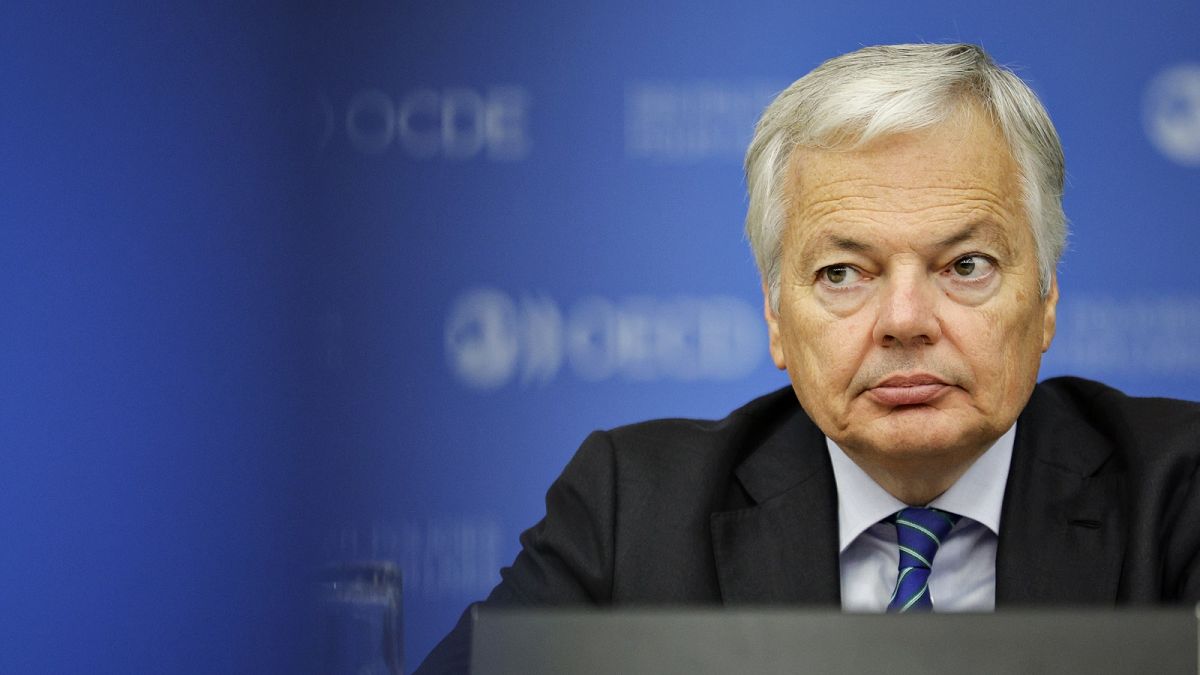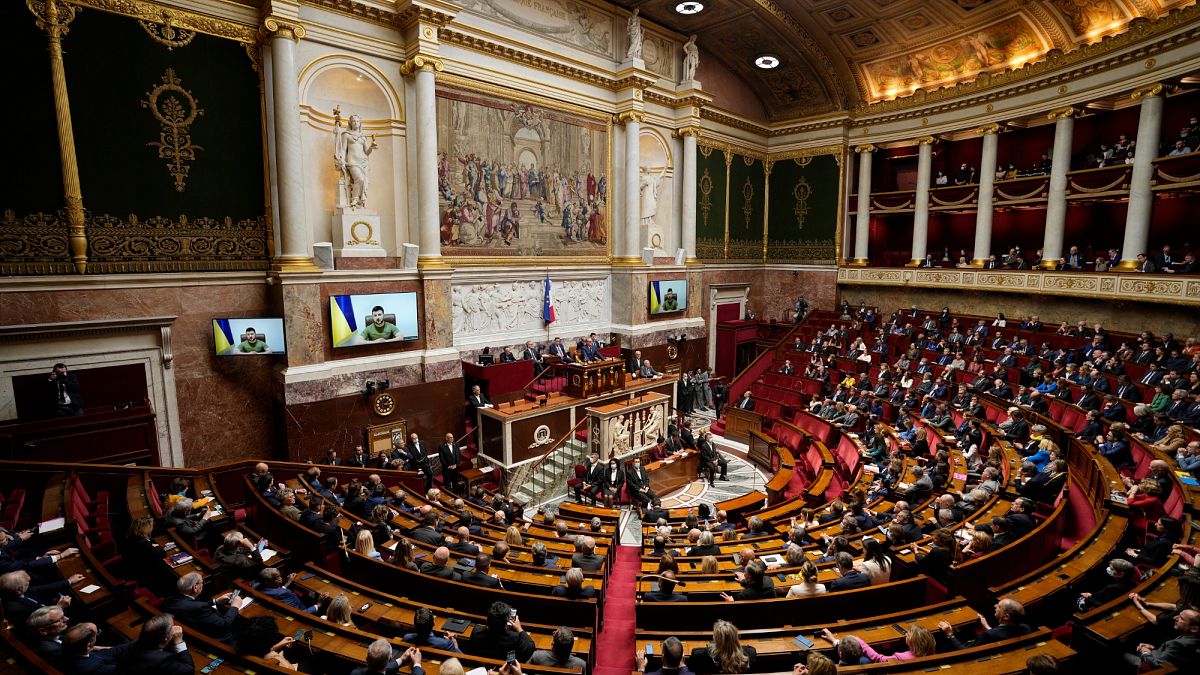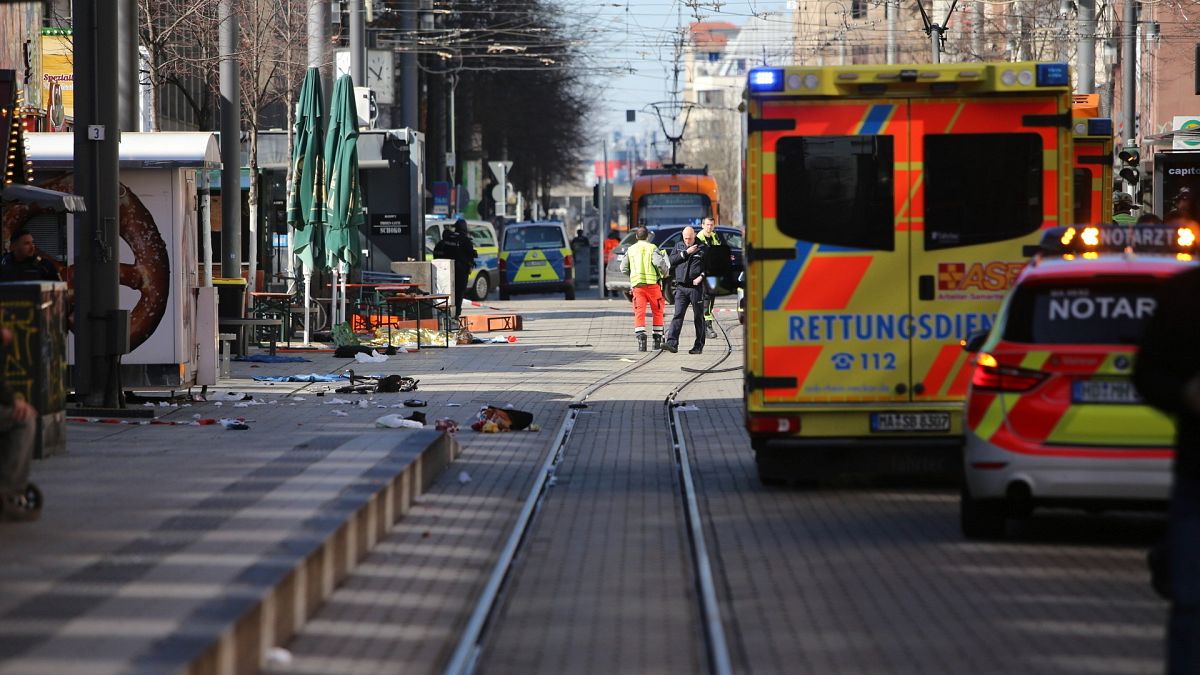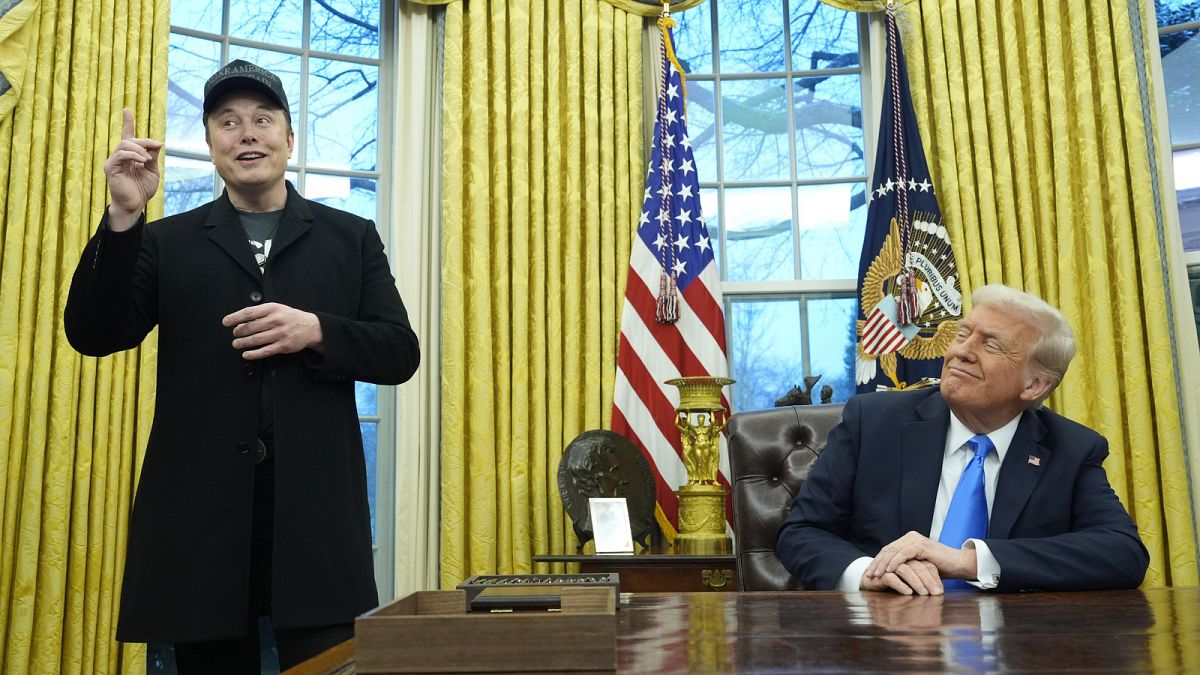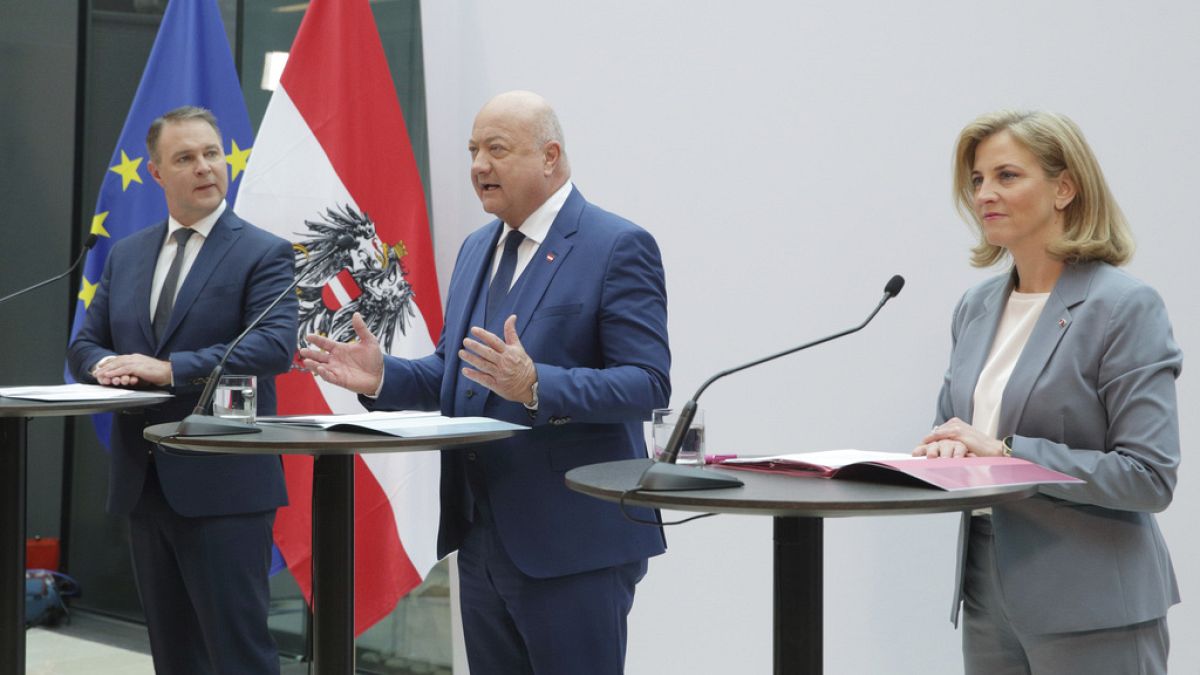Didier Reynders, the former European Commissioner for Justice, is under suspicion of money laundering.
Didier Reynders is at the centre of a new criminal scandal engulfing Brussels.
Belgian authorities suspect the politician has for years engaged in a money-laundering scheme involving lottery tickets and cash of unknown origin. Reynders has already been questioned by prosecutors and police have raided several of his properties. He has not yet replied to the latest accusations.
Who exactly is this man?
Born in Liège, a city in the French-speaking region of Wallonia, in Belgium, Reynders studied law and began his career as a lawyer before entering politics. He joined Mouvement réformateur (MR), the liberal party of Wallonia, and climbed up the ladder until becoming minister of finance in 1999.
Reynders survived the chaotic nature of Belgian politics and managed to hold the powerful position until 2011, serving under four different prime ministers, including Herman Van Rompuy, who would later become the first-ever president of the European Commission. During these years, Reynders’s profile rose rapidly: he was elected chairman of his party and, upon the King’s request, acted as moderator (or “informateur”) to break the political impasse following the 2007 and 2011 elections.
After his stint helming the financial portfolio, Reynders landed another influential job: minister of foreign affairs, serving from 2011 to 2019 under three different prime ministers.
In early 2019, he ran for Secretary General of the Council of Europe, a non-EU organisation devoted to human rights and democracy, and made it to the final list of candidates. However, the Belgian lost to Croatia’s Marija Pejčinović Burić, who received 159 votes against his 105 tally.
Reynders got a chance for redemption in the summer of that same year when Prime Minister Charles Michel nominated him as Belgium’s pick for European Commissioner, under the leadership of Ursula von der Leyen, then an unknown figure in Brussels.
But soon after the nomination, Reynders became the subject of a police investigation over allegations of corruption and money laundering.
The case was based on claims made by a former secret agent, who contacted the federal judicial police and told them about bribes being paid for the construction of the Belgian embassy in Kinshasa, the capital of the Democratic Republic of Congo, a country with which Belgium has a complicated history due to colonisation.
The secret agent described how Reynders and a loyal member of his staff had laundered money by selling works of art and antiques of little value at inflated prices. The source also spoke about real estate transactions and shell companies based in tax havens.
The probe, which made headlines in the Belgian press, was dropped in late September, mere days before Reynders appeared before the European Parliament for his confirmation hearing. The Commissioner-designate strenuously denied the accusations and portrayed them as a “malicious attack” to derail his next career move.
Fighting for the rule of law
Reynders took office as European Commissioner for Justice in December 2019.
Initially, his profile was low and his work was eclipsed by the COVID-19 pandemic. Gradually, though, Reynders acquired greater prominence with his defence of the rule of law in Poland and Hungary, two countries with severe democratic backsliding.
Reynders led the Commission’s legal crusade against Poland’s highly controversial judicial reform, arguing the changes had weakened traditional checks and balances and enabled political encroachment upon the judiciary.
The disciplinary chamber of the Polish Supreme Court, which was empowered to punish magistrates according to the content of their rulings, was a particular point of friction.
As Warsaw, under the leadership of the hard-right Law and Justice (PiS) party, refused to back down, the Commission launched several infringement procedures to contest the legality of the reform. At the same time, it froze €137 billion in cohesion and recovery funds from Poland’s allocated share of the bloc’s budget.
The clash was so fierce that it prompted speculation of a “Polexit.” A ruling by the European Court of Justice in June 2023 and the victory of Donald Tusk’s pro-EU coalition paved the way for a rapprochement and the release of all cash.
In parallel, Reynders battled with the Hungarian government of Viktor Orbán over various issues such as judicial independence, LGBTQ rights, asylum procedures, public procurement, conflicts of interests, corruption and academic freedom.
The many deficiencies detected in Hungary led to a raft of lawsuits, daily fines and the freezing of more than €30 billion in EU funds.
In December 2023, the Commission decided to unblock €10.2 billion in response to a judicial reform presented by Budapest. As a result, Reynders and his colleagues faced a furious backlash from the European Parliament, who claimed the executive had engaged in a backroom deal with Orbán before a crucial EU summit.
“The Commission was under legal obligation to take a decision,” Reynders told MEPs.
During his tenure, Reynders received an unexpected assignment when he was asked to moderate negotiations between the two main parties in Spain, the ruling socialists and the conservative opposition, on the renewal of the General Council of the Judiciary.
In the spring of 2024, Reynders tried again to run for Secretary General of the Council of Europe but lost badly to the other two contestants, finishing third with a meagre 46 votes. Switzerland’s Alain Berset secured a victory with 114 votes.
With that job out of the window, Reynders pitched himself for a second mandate as European Commissioner, waving his credentials as a rule-of-law defender as an argument in his favour. After weeks of speculation, the Belgian government of Alexander De Croo chose Hadja Lahbib, a fellow Francophone liberal, over Reynders.
According to the Belgian press, Reynders expressed his “deep disappointment” with the decision made by his MR party.
Two days after his mandate as Commissioner ended, Belgian police raided his house.






